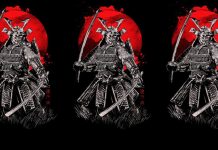This week we celebrated a birthday of one of my favorite student’s, Justin Ray Harvey. It’s significant because Justin is a true champion. He has had Cerebral Palsy since birth and he must fight his own personal kumite every day. His courage was apparent even before he arrived in my home. Justin had to travel on a plane for the first time in his life, and go clear across the country. His situation is special and meaningful, and it reminds me about the complexity and significance of The Principle of Flow. Many mistakenly limit the meaning of flow, (one of the Five Principles of Everything as identified by Gordon Richiusa), as fluid in one’s movements, or acting without hesitation. However, the principle of flow has a far greater, often hidden, meaning for those of us who are martial arts teachers. Flow means moving our students toward their personal best, while accepting the reality of where they started out.
“When not interfered with by outside influences everything nature does is done with perfection.” – Hanshi, Frank W. Dux
An example of how the principle of flow worked in my own life comes from an adventure with a childhood friend, Grant. I do not know why we became such good friends. Grant could not play sports or understand things as quickly as other children, but never-the-less, we were friends.
I believe that disabled children like Grant come into this world to benefit the rest of us. (Benefit is another of the Five Principles of Everything). Special individuals give us an opportunity to realize Core Human Values, and they show us that our motivation for taking action is sometimes more important than the actions we are taking. We often treat handicapped people as if they were children. This may or may not be the right thing, unless our intentions are pure. In so doing, we may be demonstrating a variety of complex motivations, not the least of which is a desire to do our best at communicating.
When I was 10, Grant and I walked past a park where boys from my Cub Scouts pack were playing baseball. I could see in Grant’s eyes he wanted to play, but he didn’t dare ask the question, “Do you think they’ll let me play?” as other child would do.
I knew that most of the boys would not want someone like Grant on their team, but I also understood that if my friend were allowed to play, it would make him feel accepted by others, in spite of his handicaps. I approached one of the boys from my Pack, Troop 222 and asked, not expecting much, if Grant could play. The boy looked around for approval and then said, “Yeah, why not? We’re down by six runs and the game is in the eighth inning. I guess he can be on our team and we’ll try to put him in to bat in the ninth inning.”
In his leg braces, one foot with a Frankenstein style boot because he was born with one leg shorter than the other, Grant struggled over to the team’s bench. With a broad smile, a small tear in my eye and warmth in my heart, I watched Grant. He beamed at the fact that he was allowed to sit on the bench with the other boys. Grant timidly picked up a glove lying nearby. It was the first time he ever held a baseball mitt.
In the bottom of the eighth inning, Grant’s team scored a few runs, but was still behind by three. In the top of the ninth inning, Grant, borrowing my friend’s glove, played right field. Even though no hits came his way he was obviously ecstatic just to be in the game, and on the field. He was grinning from ear to ear as I waved to him from the stands.
In the bottom of the ninth inning, Grant’s team scored again. Now, with two outs and the bases loaded, the potential winning run was on base and Grant was scheduled to be next at bat.
Now Grant’s team had the potential to win the game, and the typical pitch hitter stepped forward, causing my heart to drop. I knew they couldn’t let Grant bat and give away the chance to win the game.
Surprisingly, Grant’s new teammates looked at the pitch hitter and then back to Grant. Grant was given the bat by a boy I didn’t know. Everyone knew that a hit was all but impossible for Grant, as Grant didn’t even know how to hold the bat properly, much less connect with the ball, but Grant stepped up to the plate anyway. The pitcher realized that the other team was putting winning aside to give Grant his special moment so the pitcher moved in a few steps to lob the ball in softly so Grant could try to make contact.
The first pitch came and Grant swung clumsily and missed. The pitcher again took a few steps forward to toss the ball softly towards Grant.
As the pitch came in, Grant swung at the ball and hit a slow grounder right back to the pitcher. The game could have been over, but the pitcher picked up the grounder and threw the ball right over the first baseman’s head, out of reach of all his teammates. The pitcher could easily have thrown the ball to the first baseman, Grant would have been out, and that would have been the end of the game.
Everyone from the stands and both teams started yelling, “Grant, run to first! Run to first!”
Never in his life had Grant run that far, but he made it to first base. He scampered down the baseline, wide-eyed and startled.
Everyone yelled, “Run to second; run to second!” Catching his breath, Grant awkwardly ran towards second, beaming and struggling to make it to the base.
By the time Grant rounded first and went toward second base, the right fielder had the ball and the smallest guy on their team now had his chance to be the hero for his team. He could have thrown the ball to the second-baseman for the tag, but he understood the pitcher’s intentions so he too intentionally threw the ball high and far over the third-baseman’s head. Grant ran toward third base, delirious, and the runners ahead of him circled, running toward home.
All were screaming, “Grant! Grant! Grant! All the Way Grant!”
Grant reached third base because the opposing shortstop ran to help him, turning him in the right direction, and shouted, “Run to third! Grant, run to third!”
As Grant rounded third, the boys from both teams, and the spectators were on their feet screaming, “Grant, run home! Run home!”
Grant ran home, stepped on the plate, and was cheered as the hero who hit the grand slam and won the game for his team. That day, boys from both teams helped bring civility and humanity to our world.
I moved away that summer. Years later, I was told Grant died that winter, but he had never forgotten the day he was a baseball hero.
The crude, vulgar, and often obscene pass freely through cyberspace, but public discussion about decency is often overlooked. We all have thousands of opportunities every single day to help realize the natural order of things. The defining trait of a true martial artist and warrior–that which separates us from a technician or thug–is how we treat the less fortunate according to the Principle of Flow.
By the way, Grant’s baseball adventure resulted in his father taking us to Ed Parker’s Long Beach Internationals in 1967. It was there that my defining moment took place and I was inspired to take up the study of martial arts. Would I have been so inspired had Grant’s father not been motivated to take us to see Ed Parker’s event? Everything relates to everything else. It’s comforting to think that one good, yet innocent decision, led me to a lifetime of martial arts involvement.






